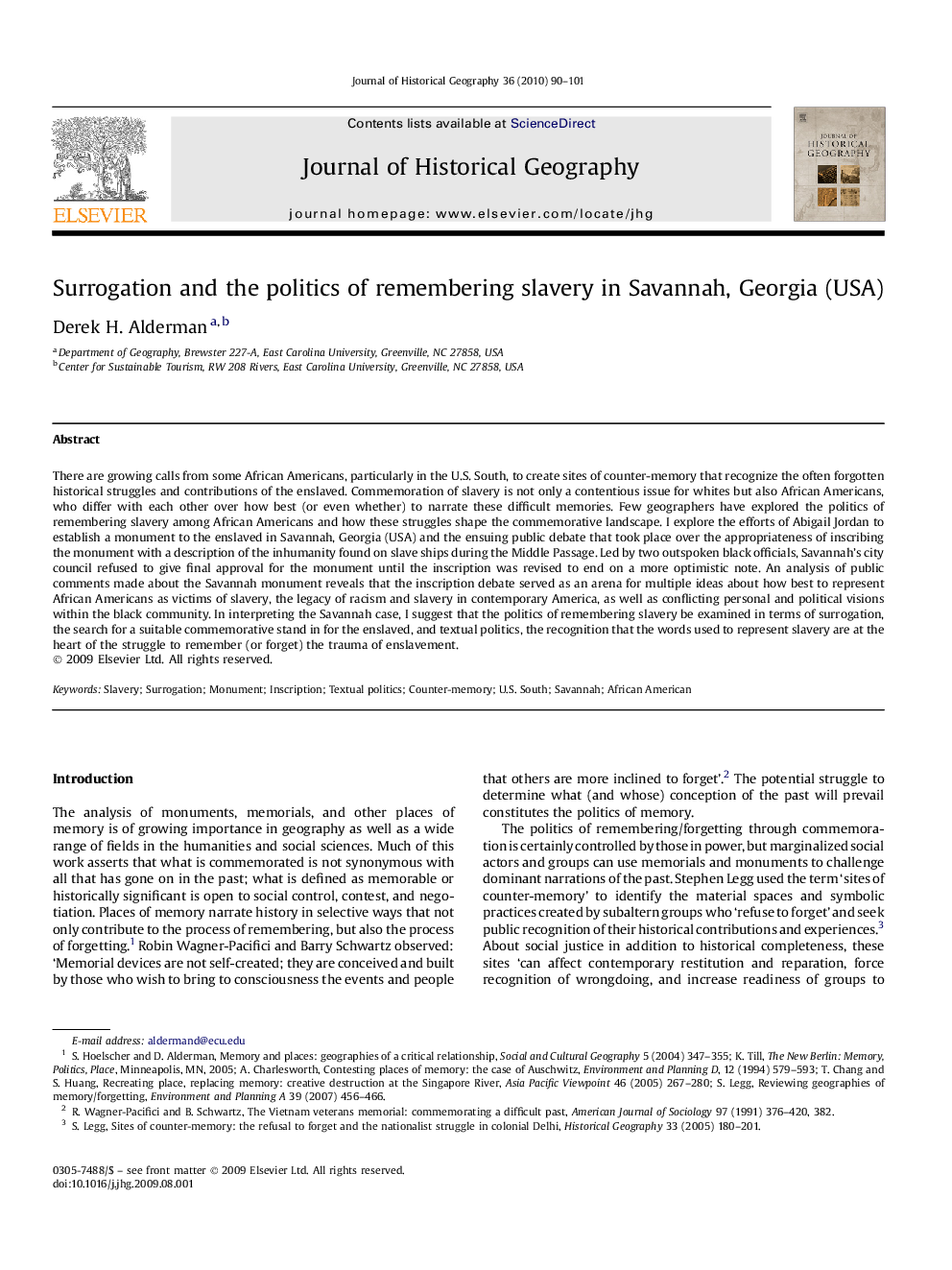| Article ID | Journal | Published Year | Pages | File Type |
|---|---|---|---|---|
| 1039330 | Journal of Historical Geography | 2010 | 12 Pages |
There are growing calls from some African Americans, particularly in the U.S. South, to create sites of counter-memory that recognize the often forgotten historical struggles and contributions of the enslaved. Commemoration of slavery is not only a contentious issue for whites but also African Americans, who differ with each other over how best (or even whether) to narrate these difficult memories. Few geographers have explored the politics of remembering slavery among African Americans and how these struggles shape the commemorative landscape. I explore the efforts of Abigail Jordan to establish a monument to the enslaved in Savannah, Georgia (USA) and the ensuing public debate that took place over the appropriateness of inscribing the monument with a description of the inhumanity found on slave ships during the Middle Passage. Led by two outspoken black officials, Savannah's city council refused to give final approval for the monument until the inscription was revised to end on a more optimistic note. An analysis of public comments made about the Savannah monument reveals that the inscription debate served as an arena for multiple ideas about how best to represent African Americans as victims of slavery, the legacy of racism and slavery in contemporary America, as well as conflicting personal and political visions within the black community. In interpreting the Savannah case, I suggest that the politics of remembering slavery be examined in terms of surrogation, the search for a suitable commemorative stand in for the enslaved, and textual politics, the recognition that the words used to represent slavery are at the heart of the struggle to remember (or forget) the trauma of enslavement.
